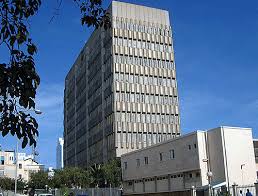Bank of Uganda walks the high-wire amidst Covid-19 disruptions

Uganda’s central banker has moved to lower the cost of capital with an eye on the downside risks to the economy that are now amplified by the Covid-19 crisis. On Monday, the Bank of Uganda’s Monetary Policy Committee (MPC) meeting for April, reduced the Central Bank Rate (CBR) by 100 basis points to eight percent.
The lowest level since the indicative rate was introduced at 13pc in July 2011, the move is intended to raise the appetite for credit and encourage investors to sustain production.
BoU says the Covid-19 pandemic has triggered a sharp contraction in domestic economic activity as a result of disruptions to the global supply chain, travel restrictions, measures to limit contact between persons, and the sudden decline in demand.
“Consumer-facing sectors have been severely affected by social distancing measures and heightened uncertainty, while the manufacturing sector has declined on account of disruptions to the inflow of raw materials. Economic activity in the trade sector has also been weighed down by the decline in external demand and supply chain disruptions, while service sectors such as finance, insurance, and information and communications are affected by the general stall in business activity and investment,” BoU said.
The Bank projects that as a result, the economy slow down drastically during H2 of the current financial year with GDP growth projected to shrink from the initial estimates of 6-6.5pc to 3 – 4pc for the full year. The lender of final resort further sees higher downside risks to the economic growth outlook in the near term with economic activity expected to remain subdued until the pandemic is over. GDP growth is only expected to start a gradual recovery during H2 in fiscal 2020/21.
The local unit also suffered a 2.2pc slippage against the greenback between February and March as the USD appreciated against major currencies. The central bank which has been propping up the local unit to smoothen the volatility in the domestic foreign exchange market also sees the negative fallout from the crisis piling pressure on Uganda’s external position as a result of steeper capital outflows amidst dampened international trade, tourism, workers’ remittances, foreign direct investment and loan disbursement. That is expected to add more pressure to the exchange rate.

 African Heads of state head to South Korea next week for Summit talks
African Heads of state head to South Korea next week for Summit talks
 Trading leads as main source of income for Ugandans
Trading leads as main source of income for Ugandans
 New leadership for bankers’ umbrella as total assets top $12 billion
New leadership for bankers’ umbrella as total assets top $12 billion
 Brussels Airlines to announce Nairobi service
Brussels Airlines to announce Nairobi service
 SITA promises enhanced travel experience after Materna acquisition
SITA promises enhanced travel experience after Materna acquisition
 Saudia’s 105 aircraft order stretches A320neo lead over rival Max
Saudia’s 105 aircraft order stretches A320neo lead over rival Max
